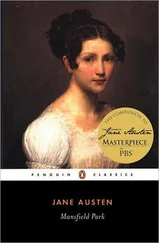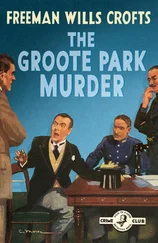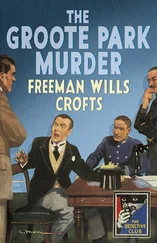"There is no hardship, I suppose," continued Edmund, "in going on the barouche box?"
"Hardship!" replied Maria; "Oh! I believe it would be generally thought the favourite seat. There can be no comparison as to one’s view of the country from the barouche box."
"Quite so," said Fanny, with a look at Edmund. "I have no doubt that Miss Crawford will choose that seat. She has a great desire to see Compton."
"Miss Crawford has not often an opportunity to see her brother’s work," was Edmund’s only reply, and the subject was dropped.
Friday was fine, and soon after breakfast Mr Rushworth arrived, driving the barouche. Miss Price was clearly meditating how best, and with the most appearance of obliging the others, to secure the barouche box, while Miss Bertram was equally clearly intent on thwarting her, an aim in which she was warmly seconded by her aunt. "You were saying lately, Maria," Mrs Norris said quickly, "that you wished you could drive; I think this will be a good opportunity for you to take a lesson."
Happy Maria! Unhappy Fanny! The latter took her seat within, in gloom and mortification; the former was assisted in ascending the box by Edmund, who saw it all, but said nothing.
When they approached Compton, Mr Rushworth appropriated the role of guide, and regaled them with a succession of observations on the property on each side of the road.
"Now we shall have no more rough road, Miss Bertram, our difficulties are over. Mr Smith had it made when he first purchased the estate. His original intention was to keep the old road as it was, since it passed by some very pretty cottages — delightfully picturesque objects, all ruined and overgrown with ivy — but the wretched tenants made so many difficulties about living in them that he was forced to undertake renovations, with the result that the houses now look quite ordinary and dull. Happily he lighted on the idea of moving the road entirely, so one is no longer troubled by the sight of villagers as one approaches the house. Miss Bertram will be able to see the church tower now, through the trees. Some reckon it tolerably handsome, but Smith tells me the annoyance of the bells is terrible, and I myself can testify to the clergyman’s wife being a remarkably ill-looking woman. Ah," he said as the barouche rounded a bend, "we are about to gain our first sight of the house. Here lies the prospect, Miss Julia," he said, turning back to her where she sat silent and pale at the back of the barouche, "and I am sure you will agree that the approach now , is one of the finest things you ever saw: you will see the rear facade in the most surprising manner. People tell me it is the admiration of all the country, but I assure you it was a mere nothing before — well — before your brother took it in hand, Miss Crawford," he concluded, with a momentary embarrassment, recollecting that the architect of this marvellously improved prospect was not, after all, his friend Mr Smith, but the man riding silently alongside him. Henry proved, moreover, to be close at his elbow at that moment, making so instantaneous a change of expression and tone necessary, as Mary, in spite of everything, could hardly help laughing at.
"Capital, my dear Crawford! I was just saying to the ladies, you have out-Repton’d Repton! We are all anticipating the view of the house with the keenest enthusiasm."
They turned in at the lodge and found themselves at the bottom of a low eminence overspread with trees. A little way farther the wood suddenly ceased, and the eye was instantly caught by the house. It was a handsome brick building, backed by gently rising hills, and in front, a stream of some natural importance had been swelled into a series of small lakes, by Henry’s skill and ingenuity. The barouche was stopped for a few minutes, and the three gentlemen rode up to join them. Mary’s heart swelled with pride and pleasure, to see her brother’s genius and taste realised in the beauties of a landscape such as this. Even Mrs Norris was forced into admiration, though evidently against her will. "I wish my dear husband could have seen this," said she. "It is quite like something we had planned at the White House."
Henry was excessively pleased. If Mrs Norris could feel as much as this, the inference of what the young ladies must feel was indeed gratifying. He glanced at Miss Price, to see if a word of accordant praise could be extorted from her, but although she remained resolutely silent, his spirits were in as happy a state as professional pride could furnish when they drove up the last stretch of road to the spacious stone steps before the principal entrance.
The housekeeper met them at the door, and the particular object of the day was then considered. How would the ladies like — in what manner would they choose — to take a survey of the grounds?
"I wonder," said Mr Crawford, looking round him, "whether the party would be interested in an account of the improvements so far? Seeing the park as it is now, it is difficult to imagine it as it was. Shall we summon a council on the lawn? And what does Miss Julia say?" he continued more gently, turning to where she stood at the edge of the party. "How should you like to proceed?"
Julia did not at first appear to have heard, but when Mary touched her gently on the arm she roused herself, and acknowledged in a sad voice, "I suppose I am here to be persuaded, and I cannot give my approbation without knowing how it has been altered."
"Very well," began Henry. "Since I came to Compton we have turned the whole house to front the south-west instead of the north — the entrance and principal rooms, are now on that side, where the view, as you saw, is very fine. The approach was moved, as Mr Rushworth described, and this new garden made at what is now the back of the house, which gives it the best aspect in the world."
"You speak of turning the house with as much ease as I might turn my horse!" cried Tom. "Crawford, is there no limit to your exertions in pursuit of your object?"
"Indeed not," replied Henry, with a look at Miss Price, who affected not to notice. "My role is to improve upon nature, to supply her deficiencies, and create the perfect prospect that should have been from the imperfect one that is."
"A trifling ambition, upon my word!" rejoined Tom. "I will remember to call upon your services when I want a river diverted, a hill removed, or a valley levelled."
"All feats which I have indeed performed!" laughed Henry. "But, to conclude my narration, the meadows you can just see beyond the wilderness have all been laid together in the last year.The wilderness on the right hand was already here when I came — it had been planted up some years before. As such it is further advanced than much of the planting in the new garden, and I commend it to you as not only a pretty walk, but the one affording the best shade on a hot day."
No objection was made, but for some time there seemed no inclination to move in any direction, or to any distance. All dispersed about in happy spontaneous groups, though there was, perhaps, a degree of premeditation in Mrs Norris’s determination to accompany Mr Rushworth and Fanny. For her part, Mary made sure to keep close to Julia, who had relapsed once again into silence and sadness. A moment later she found, to her surprise, that Mr Norris intended to join them, and the three began with a turn on the lawn. A second circuit led them naturally to the door which Henry had told them opened to the wilderness; from there a considerable flight of steps landed them in darkness and shade and natural beauty, compared with the heat and full sunshine of the terrace. For some time they could only walk and admire, and Mary saw at once that the felling of the trees in the park had indeed opened the prospect in a most beautiful manner, even if she forbore from voicing this opinion aloud. At length, after a short pause, Julia turned to Mary and said, "I suppose it must be my late illness that makes me so tired, but the next time we come to a seat, I should be glad to sit down for a little while."
Читать дальше












